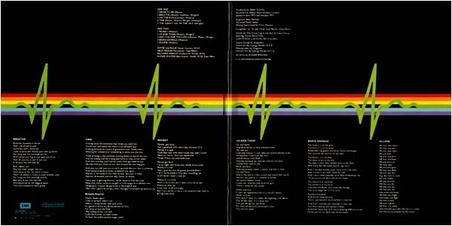Philip Sandifer's Blog, page 3
November 28, 2020
IDSG Ep74 National Justice Party Program, Part 2
Part 2 of our look at the National Justice Party's 25 Point Program, with special attention paid to ecofascist rhetoric.
Content Warnings.
Permalink / Direct Download / Soundcloud
Links / Notes:
Part 1 pf this discussion: https://idontspeakgerman.libsyn.com/73-the-njp-program-part-1
National Justice Party: https://nationaljusticeparty.com/
National Justice Party Platform: https://nationaljusticeparty.com/platform/
Mike Enoch/Peinovich "The Way Forward" Speech: https://nationaljusticeparty.com/2020/11/19/the-way-forward/
Strike and Mike Episode 137: (unavailable because it's paywall content, can't imagine why)
Bernie Sanders Rally Ann Arbor March 8, 2020. AOC arrives around 1:14:00. https://www.youtube.com/watch?v=ekJo2mW_yAA
Relevant previous IDSG episodes:
9: Mike Enoch and The Daily Shoah https://idontspeakgerman.libsyn.com/i-dont-speak-german-episode-9-mike-enoch-and-the-daily-shoah
52: Genocide and The Right Stuff https://idontspeakgerman.libsyn.com/52-genocide-and-the-right-stuff
70: The National Justice Party https://idontspeakgerman.libsyn.com/70-national-justice-party
Jack's article about why fascism and socialism are different things, including stuff about fascists appropriating left rhetoric:
November 26, 2020
IDSG Ep 73 National Justice Party Program, Part 1
In this episode, the first of a two-parter, Daniel tells Jack all about the new 25 Point Program of the National Justice Party, the latest venture from Mike Enoch and the Right Stuff rabble, and their hope of peeling away support from disaffected leftists using 'Third Position' rhetoric. Daniel starts going through the program point-by-point, analysing its hypocrisies and contradictions. The 'left' rhetoric is exposed by comparison with genuine left ideas and principles. To be continued... soon.
Content Warnings.
Permalink / Direct Download / Soundcloud
Links / Notes:
National Justice Party: https://nationaljusticeparty.com/
National Justice Party Platform: https://nationaljusticeparty.com/platform/
Mike Enoch/Peinovich "The Way Forward" Speech: https://nationaljusticeparty.com/2020/11/19/the-way-forward/
Strike and Mike Episode 137: (unavailable because it's paywall content, can't imagine why)
Bernie Sanders Rally Ann Arbor March 8, 2020. AOC arrives around 1:14:00. https://www.youtube.com/watch?v=ekJo2mW_yAA
Relevant previous IDSG episodes:
9: Mike Enoch and The Daily Shoah https://idontspeakgerman.libsyn.com/i-dont-speak-german-episode-9-mike-enoch-and-the-daily-shoah
52: Genocide and The Right Stuff https://idontspeakgerman.libsyn.com/52-genocide-and-the-right-stuff
70: The National Justice Party https://idontspeakgerman.libsyn.com/70-national-justice-party
Jack's article about why fascism and socialism are different things, including stuff about fascists appropriating left rhetoric:
November 19, 2020
Of Human Bondage Episode 4: Harry Potter and the Thunder of Balls (Thunderball)
The Bondage crew (we're working on a name) returns to tackle the first truly forgettable James Bond movie, 1965's Thunderball, director Terence Young's last outing with the character, and Sean Connery's penultimate Bond film before his first retirement from the role. We do our best with the material, and we come out pretty well.
Not un... dundundundundun... like THUUUUNDEEEEEERBAAAAAAALL!
November 18, 2020
IDSG Ep72 The Social Network
This time, after a brief obligatory discussion of current events, Daniel and Jack take one of their periodic detours into film discussion to talk about David Fincher's 2010 movie The Social Network about Mark Zuckerberg and the founding of Facebook, and thus of so many of our current problems (not that the film gets that).
Permalink / Direct Download / Soundcloud
Links/Notes:
Our old podcast about Zodiac, at Jack's Patreon: https://www.patreon.com/posts/44059681
Behind the Bastards 3-part episode on Mark Zuckerberg: https://www.iheart.com/podcast/105-behind-the-bastards-29236323/episode/part-one-mark-zuckerberg-the-worst-30417725/
November 9, 2020
IDSG Ep71 Trump Loses
Recorded 8/9 Nov 2020. What the hell do you *think* we're talking about?
Content Warning
Permalink / Direct Download / Soundcloud
North Carolina Gerrymandering article: https://www.nytimes.com/2018/08/27/us/north-carolina-congressional-districts.html
IDSG makes it to the New York Times: https://www.nytimes.com/2020/10/29/us/fbi-arrests-the-base-michigan.html
There Goes a Tenner
There Goes a Tenner
Music video
Razzamatazz
Like the cinematic heists it pastiches, “There Goes a Tenner” is both defiant and preemptively defeated. Bush’s least successful single ever, it died on the charts, slouching at a staggering #93 in the UK, was largely ignored by radio stations and TV programs, and faded into the ether with a paucity of fanfare. Following the resounding 15-month gap between the releases of “Sat In Your Lap'' and The Dreaming and the title track’s subpar chart performance, the lack of public response to Bush’s twee ballad of panto Cockney robbers is perhaps a predictable outcome. In the weeks preceding and following the release of “There Goes a Tenner,” the UK Top 10 encompassed a cadre of new wave and R&B hits from Culture Club, Tears for Fears, Marvin Gaye (with “Sexual Healing,” which we’ll talk about someday), and Kool & the Gang, an overtly goofy caper homage single seemed at best like a hard sell and total commercial folly at worst.
Even on The Dreaming, “There Goes a Tenner” feels rudimentary and extrinsic. It’s a piano/bass/drum-based track like the majority of Bush’s earlier material, which lends it a vintage quality. The rhythm of the refrain’s first line (“MY-ex-CITE-ment,” “BOTH-my-PART-ners”) has an almost trochaic pattern that’s also present in Never for Ever’s “Egypt.” Unlike the psychological abstractions of “Sat In Your Lap” or “Suspended in Gaffa,” the song’s subject is narrative and conventional. It’s a classic heist movie channeled into pop music, wherein a neophyte crook assists in a robbery (“remember that we have just allowed/half an hour/to get in, do it, and get out,” “the sense of adventure/is turning to danger”). Parabolically, the heist fails explosively (“you blow the safe up/then all I know is I wake up/covered in rubble/one of the rabble/needs mummy”) and leaves the protagonist craving their simpler, less desperate past when “you [a vague pronoun] would carry me/pockets floating in the breeze.”
Such aesthetic, narrative quaintness is decidedly out of place in 1982 pop. Bush’s mockney shtick and the thinly-layered mix sound like the score for a Buster Keaton film. She’s functionally put out a novelty single, a damning move for a pop artist in her chart heyday. The result is an odd synthesis of her older work and her newer work. Like The Dreaming’s other singles, “Tenner” is an intensely vocal track, built around the use of the human voice and mix as an instrument, especially with its Cockney hashup (“OH-KAY-RE-MEM-BAH”). What we wind up with is a song that’s more weird than interesting.
It would be comforting to assert that “There Goes a Tenner” is a lost classic that was ahead of its time, but such a claim would be more than a touch mendacious. “Tenner” is approximately Bush’s nadir as a singles artist, an unfocused mess with little distinctive musicality, a lack of imagination (comparatively, at least), a grating and flatly offensive Mockney dialect from Bush, and an unsatisfying production with a post-chorus meandering synth break that sounds like Bush giving up. If there’s a great unloved single from The Dreaming (spoilers: there is one; it’s “Night of the Swallow”), this is not it.
Time for an “and yet” moment, as I have a blog post to write if I want to eat next month. Alas the “and yet” still means expounding on the flaws of “There Goes a Tenner,” but its flaws at least communicate something about a certain British attitude to class. Said attitude is toxic, problematic, and only theoretically has anything to do with poverty and the working class, but Dreams of Orgonon is fundamentally not a story of leftist or progressive values. Chronicling Kate Bush’s career entails exploring the values of the stratum of civil society which informs her work.
“There Goes a Tenner” is Bush’s most direct acknowledgement of class to date. Admittedly this isn’t saying much, since Bush adopts an offensively bad mockney accent for its duration — “OI go in/the CROIM begins.” Her evocation of a working class Londoner involves simple language, mostly descriptions of the action such as “we got the job sussed/this shop’s shut for biz-ness” and “I’m having dreams about things/not going right/let’s leave in plenty of time tonight.” A middle-class white woman equating a panto accent, simplistic articulation, and crimes with working class identity is tremendously vexed. Alongside the troubling title track and “Pull Out the Pin,” The Dreaming isn’t a great example of Bush avoiding cultural stereotypes.
Yet even with her classism, there’s some worth to her attempts here. Fundamentally, “There Goes a Tenner” channels the heist movie through a children’s panto. It treats poverty and crime with the tropes and language available to Bush through English popular culture. “Ooh, there’s a tenner/hey look, there’s a fiver” interpolates British currency onto the trope of money exploding in the middle of a robbery, as seen in such films as Butch Cassidy and the Sundance Kid. There are some hat tips to old gangster films, like when Bush observes her partners’ conduct in the middle of their robbery: “both my partners/act like actors/you are Bogart/he is George Raft/that leaves Cagney and me.” Clumsy, to be sure, but distinct in its aesthetics, and in a better song, Bush’s dive into British class politics with crime film tropes might be enlightening.
There’s something more going on here though. Bush asserted that her robbers were incompetents with limited experience: “It's about amateur robbers who have only done small things, and this is quite a big robbery that they've been planning for months, and when it actually starts happening, they start freaking out.” She goes on to cite Butch Cassidy and the Sundance Kid as an example of hypercompetence in cinematic criminals, objecting to the composure of the genre’s heroes, observing “the crooks have always been incredibly in control and calm, and I always thought that if I ever did a robbery, I’d be really scared.”
Certainly the heist genre is populated by “chill” paragons of masculinity. It’s how you get lead actors like Paul Newman, Al Pacino, or George Clooney as top notch criminals. The genre offers the pleasures of breaking with the decorum of civil society while still keeping a layer of masculine authority in the mix, and its films tend to conclude with major punitive measures for the culprits (see Bonnie & Clyde, Dog Day Afternoon, etc).
Bush’s resulting bemusement at this is almost quaintly middle-class. “But don’t people who’ve robbed hundreds of banks get scared when they rob a bank” is the sort of question your childhood friend who’s horrified by shoplifting would pose. The pantheon of confident men in her early work is broadly absent from The Dreaming, which abounds with self-destructive masculinity. Moving beyond the bourgeois fantasy of domestic bliss between a man and a woman shakes up Bush’s faith in men. Femininity and masculinity become fluctuant, throttled by patriarchy, colonialism, trauma, and poverty. Bush could feasibly be writing a character of any gender here, but to have a woman’s voice leading the charge and vocalizing the anxiety that might pervade a robbery is canny.
Bush also taps into a tradition of British comedy which pivots on woefully incompetent characters issued a societal role or occupation completely unsuited to them. The likes of Python or Fawlty Towers spring to mind, and doubtless Bush saw some Ealing comedies. The children’s panto delivery of “There Goes a Tenner” infers a stylistic awareness of Bush’s debt to this tradition. The music video certainly tips the viewer off to what kind of song this is, with its frankly adorable deployment of Bush and Gary Hurst in black jumpsuits and soot on their faces, its dutch angles depicting the Very Scary robbery, and the explosion of a safe full of money. Its stars are the major aberration among these cliches; a woman and people of color aren’t supposed to be the daring stars of a heist film. This isn’t the heroic act of white men showing up the rest of the world; it’s women and minorities acting out of desperation.
For its vexed class dynamics, “There Goes a Tenner” does acknowledge poverty as a motivation for its characters. “Pockets floating in the breeze” indicates impoverishment, and the final line of the song “there’s a ten-shilling note/remember them?/that’s when we used to vote for him” is a weirdly subtle political critique for “Tenner.” When the single dropped in 1982, Margaret Thatcher’s Conservative Government was enjoying a 51% approval rating in the wake of the Falklands War and Thatcher’s craven sinking of the retreating Argentinian battleship the ARA General Belgrano, killing 323 people. By the 22nd of September, 9 days after the release of The Dreaming, 14% of the United Kingdom’s workforce was reported to be unemployed. As the Tory government waged a war on inflation in its slow establishment of neoliberalism, it caused a glut of unemployment that lost 1,500,000 people their jobs. “When we used to vote for him” is an odd phrase — but clearly the robbers have turned to crime because alternatives are unavailable (one merely has to point out that poverty is a major contributor to crime).
“There Goes a Tenner’s” death on the charts was not a tragedy. Bush’s decision to release it as a single is one of her oddest choices as a public figure. Yet even if by accident, she’s tapped into the zeitgeist of early neoliberalism and Thatcherite austerity. How come we’re not getting paid any more? Because Margaret fucking Thatcher ruined everything.
(Bush.) Bush — vocals, piano, Fairlight, CS80. Elliott — drums. Palmer — bass. Lawson — synclavier. Launay — engineer (backing tracks). Hardiman — engineer (overdubs). Backing tracks recorded at Townhouse Studios May – Jun ’81. Overdubs at Odyssey Aug – Dec ’81, Jan – Mar ’82. Mixed Mar – May ’82. Issued 2 November 1982 w/ B-side “Ne t’enfuis pas.” Performed on Razzmatazz 21 September 1982. Shown on Pebble Mill at One 8 October 1982. Image: Jamie Lee Curtis and Kevin Kline in A Fish Called Wanda (1988, dir. Charles Crichton).
November 8, 2020
Dark Side of the Moon (The Cover)
 The date is October 31st, 1973. My sister and I huddle cowardly in the dark, hopped up on sugar, two little girls spellbound by the rituals of Halloween. I still remember the ghosts, the lions and leopards, the vampires and wolves and sheep. I think we were lions that year. Our costumes would have been onesies.
The date is October 31st, 1973. My sister and I huddle cowardly in the dark, hopped up on sugar, two little girls spellbound by the rituals of Halloween. I still remember the ghosts, the lions and leopards, the vampires and wolves and sheep. I think we were lions that year. Our costumes would have been onesies.
My father has turned off all the lights. He puts on an album. The old turntables were analog devices, not digital. A flat circle of vinyl, upon which a tiny tip of diamond will dance crazily, the good vibrations sent through a bed of copper to be transformed into an electromagnetic pulse of sound.
It’s darker than dark. Our vision is impaired; we cannot see. The stereo is in the corner of the far wall in the living room, tucked in walnut-stained bookcases behind the end of the couch, so you can’t see the lights. We’ve only been in the house for two months, so it’s still strange, unusual, a queer place, but already the townhouse in the projects has become a distant memory as well, with only remnants of the blue-swirled carpeting preserved in our new environment. Through the speakers we hear voices, and then a man screams, and then the music swooshes in.
From my dad’s lips, a small orange glow -- finally, some light, however dim! Sometimes he rolls his own cigarettes, from some funny green-brown stuff he keeps in a cigar box. It smells better than the cigarettes that he smokes from the small box that’s ever present in his front shirt pocket. I remember the cellophane from those small little boxes. How it crinkled when crumpled, but sprung back into shape when I let go.
The music changes, swirls left and right through the stereo speakers. Voices, again. A man laughs. My dad chuckles. The orange dot glows in front of my dad’s lips, the only point of light in the room. I feel like running around in circles, raving and drooling, but I dare not because of the darkness in the still-unfamiliar living room. The music crescendos, and then an explosion resonates throughout the house. Quiet. Daddy puts the joint out. No more light.
The clocks begin to tick. Tick tick tick tick tick. A multitude of clocks. My sister and I hold hands. Daddy laughs softly. It’s almost malevolent, from such a kind, sweet, loving, gentle man. A man with big teeth. At the time, he wore his hair long. Dark brown locks with a bit of a wave at his shoulders. His mustache hadn’t gone gray yet, so you couldn’t yet see the nicotine stains under his nose. Tick tick tick tick tick. He’s still alive, as of this writing. He’s got Alzheimer’s. Four years now? Can’t remember. Back then, though, he was sharp. Creative. He was a man who made plans and executed them. He was vital, for he hadn’t yet had his heart attacks. Tick tick tick tick tick tick tick tick tick.
The alarms go off! Thunder in the other course of heaven! My sister and I scream, and Daddy laughs out loud, his voice booming off the walls. The lights flash on. “Bill!” my mother yells, “Don’t get them wound up before bedtime!” As if we weren’t wound up already. Dad only laughs, self satisfied.
I love my Father.
47 years later -- that’s an esoteric number for you JJ Abrams fans -- and now I've got that feeling once again. I’ve heard the album well over a thousand times, more than anything else I’ve ever listened to. I have a strange take on it, I hope. I’m not going to drear you with the history of the album, how many weeks it charted, how much cash it made. It’s easy enough to find those stories. But to be honest, I’ve never written about music before. I’m not a musician, despite having learnt the piano. About all I can remember how to play is a version of the Doctor Who theme stitched together from various composers -- Gold and Howell primarily. It’s clunky. I’ve never studied music theory. You’ll do better from other sources if that’s your gig. My approach to describing music will be a bit more synesthetic.
What I am is an alchemist. And in Dark Side of the Moon, I see a lot of alchemical themes. I think this is an album that I can use as a prism into my insights regarding alchemy. I think this because Dark Side of the Moon charted for, like, a gazillion weeks. It takes something special to last for so long. It has become embedded in our collective consciousness. Something about it must be... true. So I will be reading it like a piece of mythology. I will be reading it closely... as if it were truth. As scripture.
I propose a number of essays, loosely oriented around each of the songs. (The songs merge into each other; dividing them is an act of consciousness.) The songs will ground and amplify the alchemical materials -- Ritual, Duality, Reflexivity, Putrefaction, Synchronicity, Equivalent Exchange, Purification, Sacrifice, Perfection. The alchemical themes will open up the songs to deeper understandings and aletheian meanings.
Let's talk about the cover for a bit.
You shine a light through a triangle of glass, and it cuts into little pieces the distinct colors of the rainbow. The whiteness is transformed into color; it is actually made up entirely of colour, not the absence thereof. But the colour only exists in your head, which is why the "u" belongs in the word. Objectively, it's just a narrow band of electromagnetic radiation. You are the master who makes the grass green. But you are not the master. Your brain is God, creating a holographic simulation into which your consciousness may reside. Thou art that.
So we are all artists. We are all art.
Alchemy is a transformational art. And we are transformational creatures. Alchemy is not a traditional theory, which only seeks to understand the way the world is. Alchemy is not a critical theory, which seeks only to disrupt, dismantle, and destroy the world the way it is. And yet Alchemy requires the traditional theory, to know where we are, and the critical theory, for every transformation destroys what is to make something new. Alchemy is not (as it has been claimed) material social progress, though it can certainly take you there if that is where you want to go, to the extent you're willing to *change yourself*. No, alchemy is a transformational theory, rooted in intention, and measured by operational success. We change, constantly, and we can either change as the world around us shapes us, or we can orient ourselves towards a star upon the distant horizon, which is actually a light within ourselves projected outwards. We can shine on. Or flame out.
On the Other Side, colour becomes white light, the pyramid is inverted, and verily all is surrounded by darkness. The moon is a harsh mistress. She is a sign, a harbinger, a symbol of the subconscious, and a mirror. Albedo 0.12 and counting.

There are no words on the outside, no title; we have to open up the album and look inside for some context. Rainbow lines run across the interior, with a heartbeat along the green band -- the color of the heart chakra. There's no indigo; the chakra of the mind is skipped entirely as we pass through the light blue throat chakra and directly to the crown. Above the rainbow, words.
 Deeper inside we find two posters and some pyramid stickers. The stickers have the name of the band scattered about as distinct letters, with the whole tableau and each little box containing the same icons: pyramid, ground, sky, sun, tree. All from different perspectives.
Deeper inside we find two posters and some pyramid stickers. The stickers have the name of the band scattered about as distinct letters, with the whole tableau and each little box containing the same icons: pyramid, ground, sky, sun, tree. All from different perspectives.
The Tree is an alchemical symbol, one of Connectivity -- that which bridges Above and Below (ground and sky, Matter and Mind). The Sun is the Divine Masculine, shining forth to give us the day, the light, the fire of warmth that grows the tree and keeps everything alive, and everything is alive. Except in the Pyramid. Inside the Pyramid it will be dark, forever dark, for the Pyramid is a tomb, is death, is permanent, which is why it was constructed this way. There's no water in the pictures. The endless river is apocryphal.
The Pyramids are reflected in the first poster, a photograph taken at Night, under the Moon, the Divine Feminine hidden from direct view. So we find a Union of Opposites, an Alchemical Marriage.
 The other poster gives us the band. "Roger" means "famous spear" which invokes the Centurion's Lance that pierced Christ. Water, of coursre, is a reflective surface, but "Waters" also symbolize Chaos, the primordial Divine Feminine in all Her terror, before the construction of the world via the Logos -- of course, Roger Waters is the primary lyricist. "David" means "beloved" and is known as he who slays Goliath. "Gilmour" derives from a Gaelic name meaning "Son of the Follower of the Virgin Mary" -- a son of Christ, in other words, but again with an emphasis on the Divine Feminine. He slays with his guitar. So the two leads of the band are intertwined. "Richard" means "strong ruler" and "Wright" means "maker" -- compare to "Mason" who is a builder of stone, (bringing us back to the Pyramids) but this one is a "Nick" which has all kinds of interesting connotations (cutting and stealing, he of course delivers sampled sounds and voices to the tracks) as well as deriving from Nicholas meaning "victory of the people." They stand in the background, historically, but these two are also linked and form a scaffolding for the quartet to construct their art. (Don't forget, the ghost of Syd Barrett lurks unseen, whose names mean "broad island" and "bear power" so I can't help but think of Polar Bears on the Island, whispers of LOST.)
The other poster gives us the band. "Roger" means "famous spear" which invokes the Centurion's Lance that pierced Christ. Water, of coursre, is a reflective surface, but "Waters" also symbolize Chaos, the primordial Divine Feminine in all Her terror, before the construction of the world via the Logos -- of course, Roger Waters is the primary lyricist. "David" means "beloved" and is known as he who slays Goliath. "Gilmour" derives from a Gaelic name meaning "Son of the Follower of the Virgin Mary" -- a son of Christ, in other words, but again with an emphasis on the Divine Feminine. He slays with his guitar. So the two leads of the band are intertwined. "Richard" means "strong ruler" and "Wright" means "maker" -- compare to "Mason" who is a builder of stone, (bringing us back to the Pyramids) but this one is a "Nick" which has all kinds of interesting connotations (cutting and stealing, he of course delivers sampled sounds and voices to the tracks) as well as deriving from Nicholas meaning "victory of the people." They stand in the background, historically, but these two are also linked and form a scaffolding for the quartet to construct their art. (Don't forget, the ghost of Syd Barrett lurks unseen, whose names mean "broad island" and "bear power" so I can't help but think of Polar Bears on the Island, whispers of LOST.)
This is what alchemy looks like. Everything is connected. Everything is here for a reason. Including you.
So, let’s talk about Equivalent Exchange for a little bit. Alchemical transformation is based on universal principles. In the Universe, Matter/Energy is neither created nor destroyed, only transformed. To make alchemical changes, you must give something to create room for something else to flourish. It all comes around in the end. Karma is a bitch. She who hath ears, let her hear.
John 10:34
I will put these essays out to the Universe, here at the Eruditorum. I will give them to you, every few weeks or so. You, in turn, will support the Eruditorum, but in a particular way: I am asking you to make your sacrifices (your “making sacred”) to Christine Artemisia Kelley -- daughter of Christ, heart of the Goddess-Wild, borne of Strife. The first goal is to raise her Patreon by 2.3% (numbers are important). You can find her Patreon here: https://t.co/BllZ1bYIc0?amp=1
I have faith that the energy she receives from this will form an alchemical circuit that will in turn feed me to write more essays, until this Great Work is completed. As of right now, her Patreon sits at $301. When it reaches $308, I will be on the hook for the first essay (which will focus on Ritual, and run quite long). It’s swirling in my head right now. I can see the shape of things to come. Be patient. I promise. If it's meant to be, it will be.
I have faith in the Universe.
I’ll see you on the Dark Side of the Moon.

November 4, 2020
IDSG Ep70 National Justice Party
In this episode, after a little roundup of podcast recs, Daniel (finally) tells Jack all about the latest venture by Mike Enoch and the TRS: the National Justice Party. We listen in on their founding meeting in a barn and learn the *other* problem with the GOP according to Enoch's audience. Then we check in on Richard Spencer to see what he thinks about it all. Finally, Daniel gives Jack a short, improvised tutorial on the concept of... pardon us... 'Finkelthink', which Jack finds unwarrantedly confusing. Fun times. Election? What election would that be officer?
Content Warnings
Permalink / Direct Download / Soundcloud
Show Notes / Links:
Correction: In the episode, Daniel mistakenly says TRS has moved to Lancaster, PA. It's actually Greely.
Embrace The Void Podcast: https://voidpod.com/podcasts/2020/10/29/ev-164-the-far-right-wing-with-daniel-harper
Woking Up Episode 1: https://soundcloud.com/politeconversations/woking-up-1
Decoding the Gurus: https://decoding-the-gurus.captivate.fm/
ALAB Liberate Michigan: https://www.alabseries.com/episodes/episode-17-liberate-michigan
National Justice Party Website: https://nationaljusticeparty.com/
NJP Founding Speech, August 15, 2020: https://nationaljusticeparty.com/2020/08/19/national-justice-party-founding-speech-august-15-2020/
Thread from Antifascist Alligator on the known NJP members: https://twitter.com/Antifagator/status/1296426682673434624
Howard Graves and Michael Edison Hayden, "White Nationalist Organization Forms Racist, Antisemitic Political Party" https://www.splcenter.org/hatewatch/2020/08/21/white-nationalist-organization-forms-racist-antisemitic-political-party
NJP Founding Speech, August 15, 2020: https://nationaljusticeparty.com/2020/08/19/national-justice-party-founding-speech-august-15-2020/
Full Haus Episode 60: National Justice Party: https://www.youtube.com/watch?v=s7NA1sopZV0
Hunter Wallace and Richard Spencer on Third Parties: (Not available, because Spencer got all his shit deplatformed)
October 23, 2020
IDSG Ep69 Culture Warlords, with Talia Lavin
This episode, we are joined by special guest Talia Lavin to talk about her excellent new book Culture Warlords.
Content Warning.
Permalink / Direct Download / Soundcloud
Talia's Twitter: @chick_in_kiev
Culture Warlords: www.hachettebooks.com/titles/talia-l…9780306846434/
October 20, 2020
Olive Peaseblossom in Kraken Went A'Courtin
Here's a bit of a swerve for you. My awesome husband Penn Wiggins is a visual artist, and we've finally gotten around to collaborating on our first comic. Because I am me, I took Alan Moore's advice that you should start by doing short stories such as the Tharg's Future Shocks feature of 2000 AD extremely literally, mashing it up with Penn's stated desire to draw faeries and sea witches to get, well... this astoundingly goofy piece of fun.
This site isn't particularly geared for comics, so while you can click on all of the images below to expand them, my recommendation would be to head over to Penn's site, where he's actually got it configured to be easily readable. Or you can just download it, in either PDF format or CBZ format.
We're already at work on our follow-up effort, which is... also extremely silly.
And swing back on Thursday for a release of a very different sort.
Philip Sandifer's Blog
- Philip Sandifer's profile
- 48 followers








